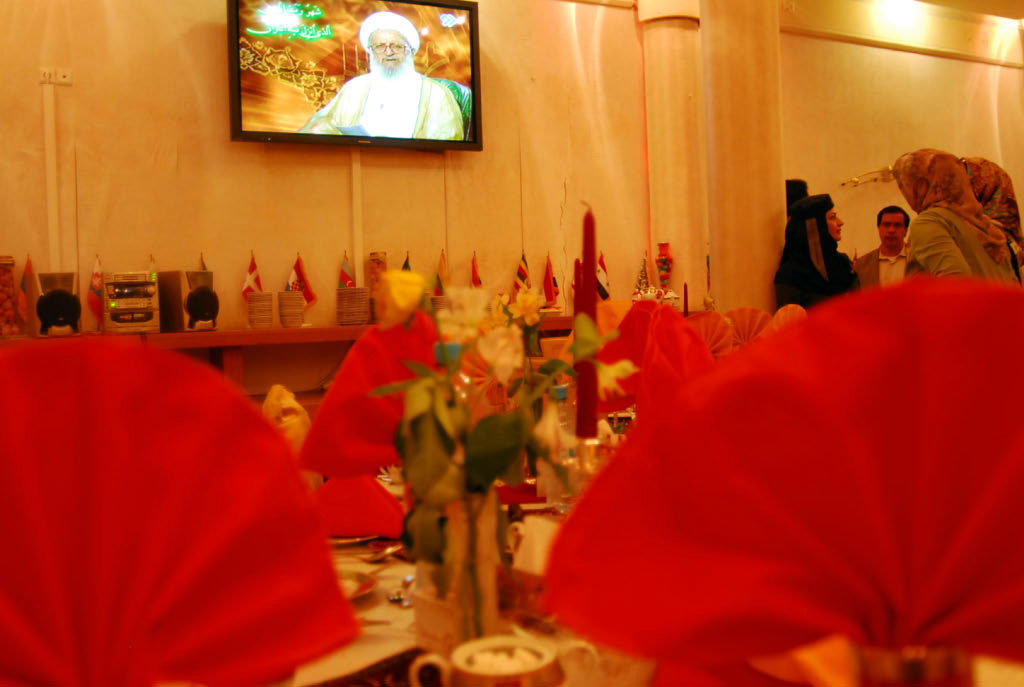A group interview in an upscale north Tehran restaurant.
Behind me to my left a dozen or so ladies dressed conservatively in black from the neck down but more like a bouquet heading up – fancy headscarf’s covering coiffure hairdos, heavily made up faces and even one lip stud – the first open body piercing I’ve spotted here. Their constant chatter carries across the restaurant and any lulls in their conversation coincide with the dramatic moments from a Ramazan soap opera emanating from a 42 inch Panasonic flat screen mounted on the wall in front of where I’m sitting. An actress spends most of the evening tied up with a gun to her head, whilst her beau runs around a dilapidated house with a plank of wood in his hand. Our interviewer battles through the excitement of the kidnapping and somehow keeps the session momentum going. I suspect the audio transcripts of this session won’t be much use.
When it’s all wrapped up, we walk back at the office/apartment to find team is finishing off today’s data entry and a late night take-away. Given our schedule there’s something welcoming about turning up at a gently buzzing space – where everyone knows what to do.
The logistics of running this kind of study mean we either opt for a hotel suite or have to rent an apartment. In Iran a private apartment is our only real choice because it’s not culturally appropriate for the 4 female members of our 8 person team to come and go to a hotel suite, particularly given the hours that we keep. Similarly our street data gathering teams are paired male-male and female-female.
Our apartment is situated in northern Tehran – a rather grand space with chandeliers a piano and many a lace covered coffee table. It’s still less than half the price of an equivalent hotel – all credit to our local guys for finding it. Doily-grandeur is not appropriate for working in and it takes only 20 minutes to reclaim the space as ours – the printer gently hums, a map of the city stretches across one wall and an Arabic ‘no mobile phones’ sign picked up in Cairo nestles between two ornate elephants on the mantelpiece.
I’ve often wondered what hotel workers make of our mobile office – everything from the annotated map of the city, participant profiles, a plethora of recording equipment and the gradual build up of visual data. Everything here is easily explained in context but I’m also aware that everything here can be taken out of context. The question is who would want to take what out of context and what are the consequences of that re-interpretation? Part of this job is assessing risk and in the current geo-political climate these are not idle questions. Before you jump to conclusions I consider the risk pretty much the same working from Tehran, Washington, London or Cairo.
